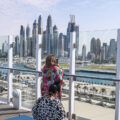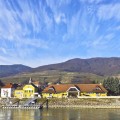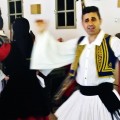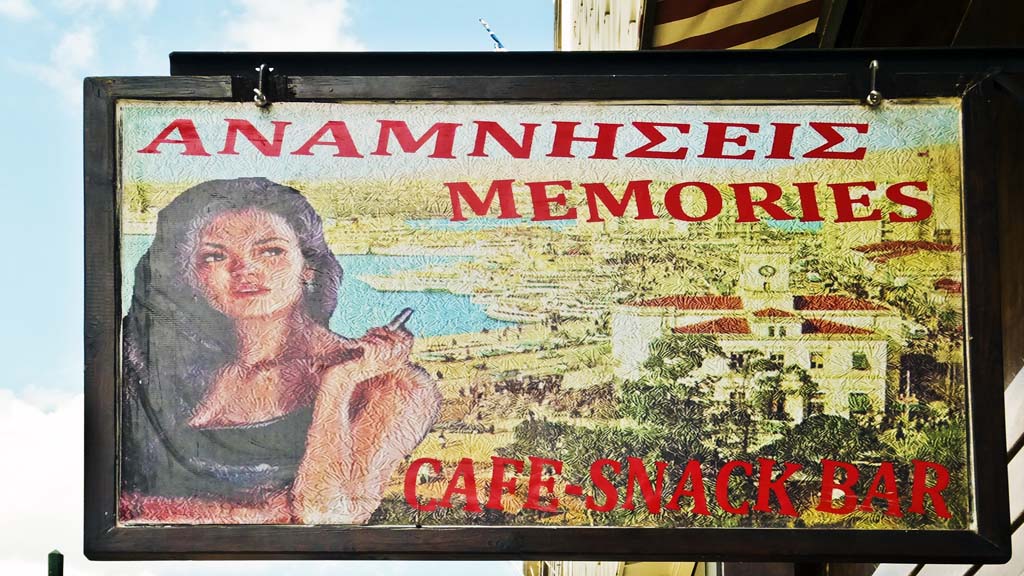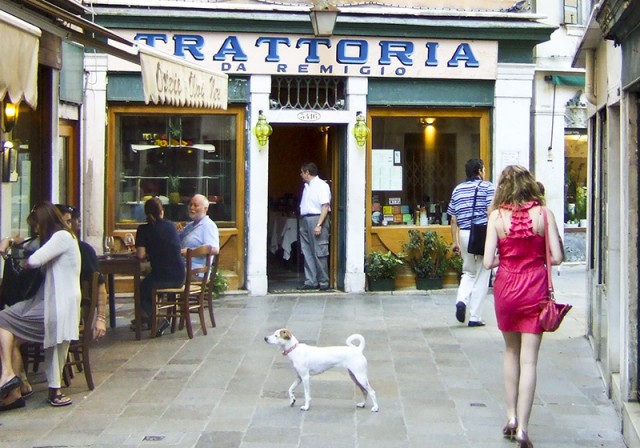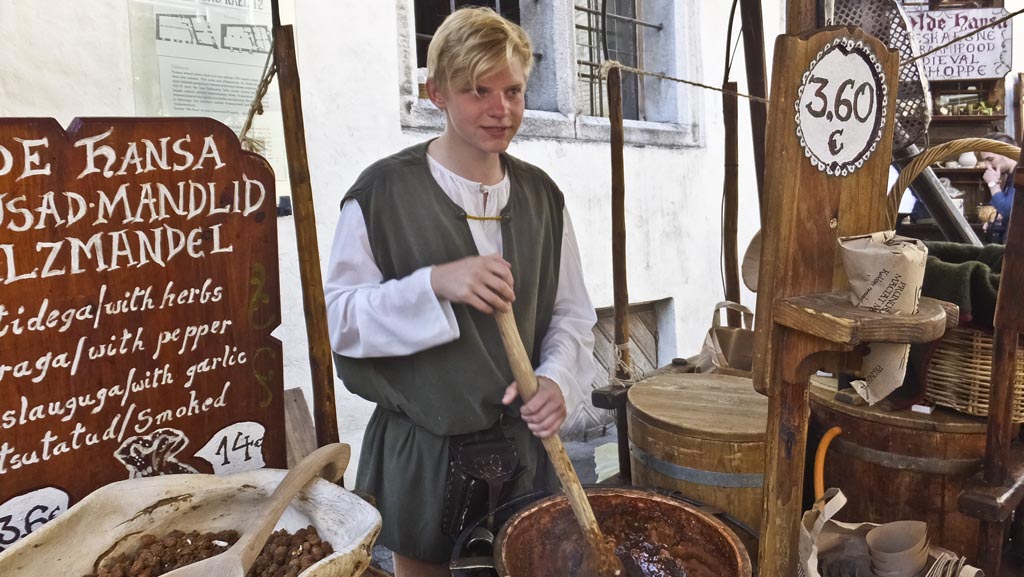
We’re greeted by a pair of executioners. There’s a shoemaker stitching a pointy-toed slipper, a candy maker is stirring sugared almonds in a cauldron and girls dressed in homespun are selling roses.
The first people you encounter going through the gates of ancient Talinn look as though they’re re-enacting a scene from the Middle Ages. But their stores are still selling real hand-made shoes, artisanal candies and home-made paper. Fortunately, the torture instruments and beheading blocks are just for show.
The old walls around the city of Talinn, as well as its elegant stone buildings still look very much as they might have in the fifteenth century, when the ships of the Hanseatic League made Estonia’s rich port–then known as Reval–a leading trading center of the Baltic region.
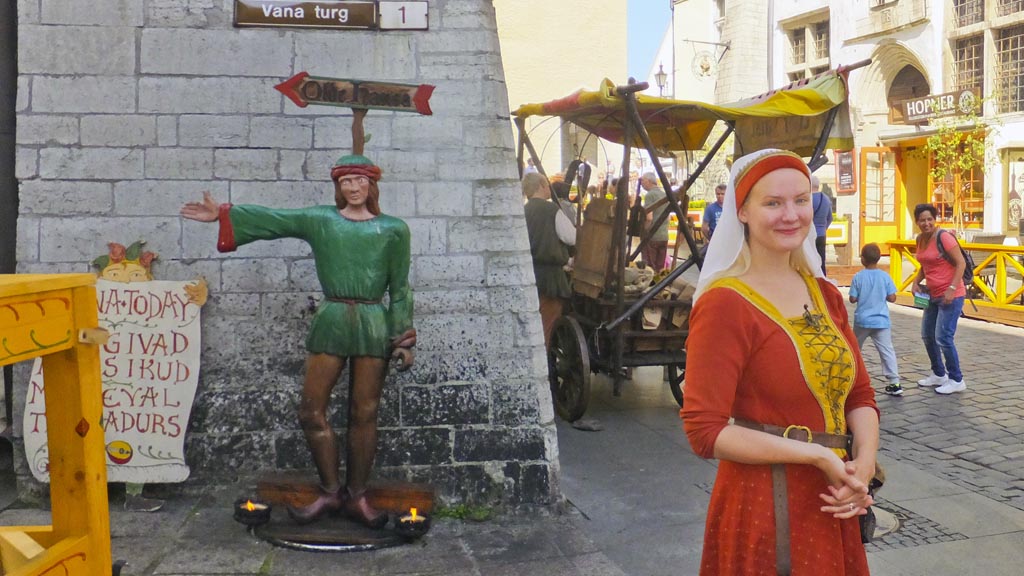
We’ve arrived in Tallinn in the traditional way, by sea, on a Baltic cruise. There were a number of tempting organized tours on tap, including a gourmet lunch, a tasting tour of wine cellars and guided historical walks, but with a town so small and a day so beautiful, I set out on my own.
The dock is close enough to the old city that it would be an easy walk into town to start exploring on foot the car-free stone streets of one of the best preserved medieval cities in the world.
What I hadn’t expected is the proliferation of modern glass towers that have marched right to the edge of the old town’s walls. They weren’t there the last time I visited Tallinn a decade ago and that’s tribute to Estonia’s fast growth as a Baltic economic center. But that’s not why we’re here today.
Here’s a look at vistas in Tallinn that Hanseatic traders would have found familiar:
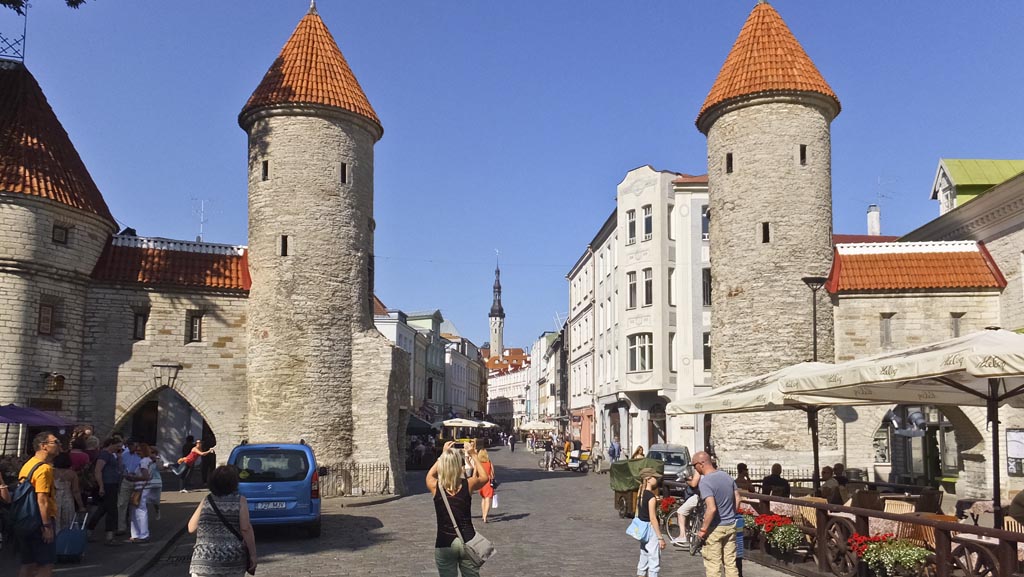
1) Viru Gate
This one’s easy to find because of its tall, round towers with pointed tops. It’s the most popular gate into the fortified city, whose thick stone walls developed around the city between the fourteenth to sixteenth centuries. Just outside the gate are flower stalls with displays so scenic it’s difficult to resist taking a selfie or two.
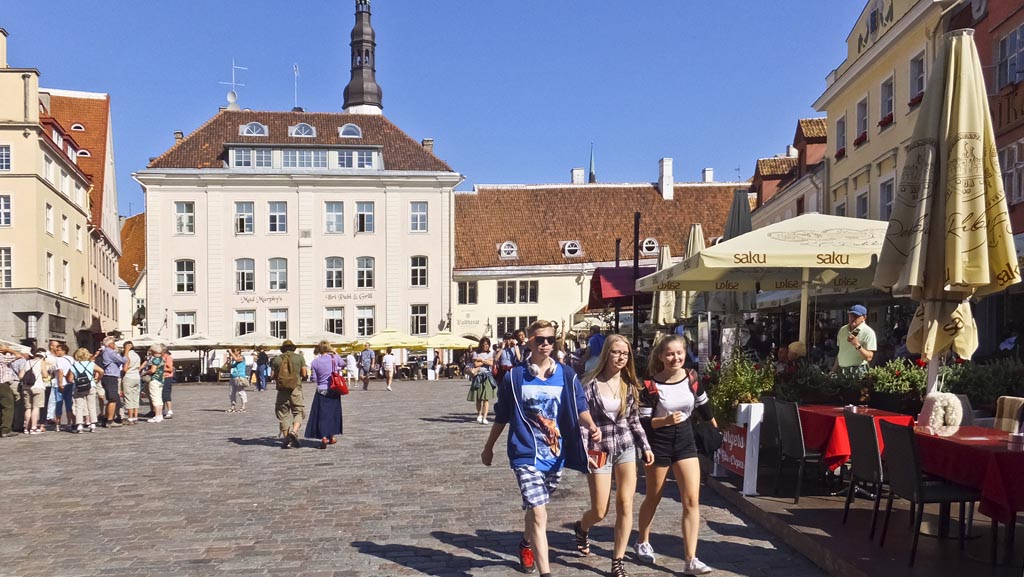
2) A Drink on Town Hall Square
The Gothic style Town Hall is simple but elegant, built of local limestone in the fifteenth century during a trade boom that included connections with Venice and Genoa. Its whimsical rain spouts are shaped like the heads of dragons.
The large square is surrounded by outdoor cafes and having a drink on the square is a great way to watch the passing scene and appreciate the architecture. One of the brewers, Viru Olu, makes beers called Bear and Trump. There’s no connection to a U.S. presidential candidate, though.
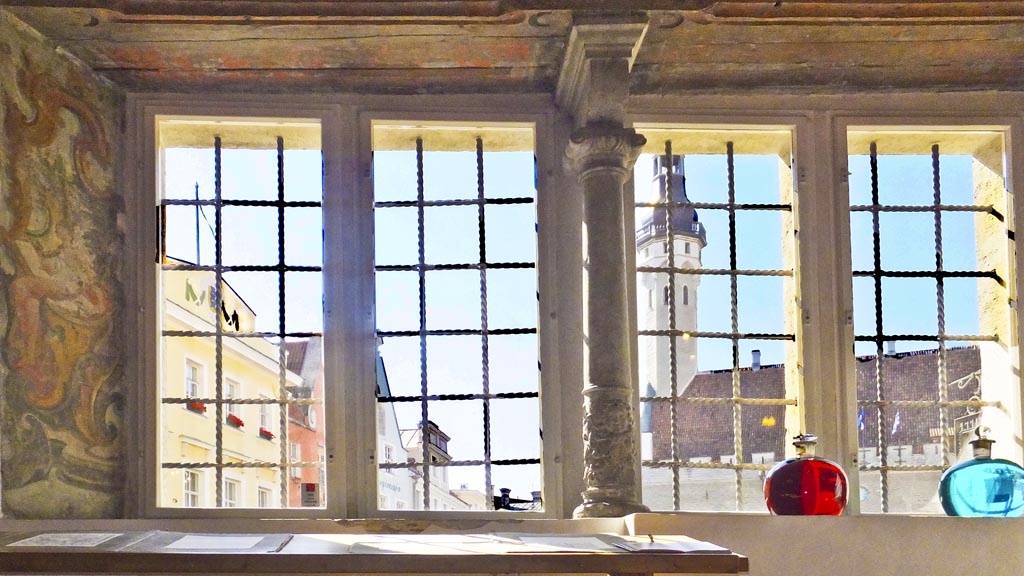
3) World’s Oldest Drug Store
A low building with leaded glass windows on the square across from Town Hall is said to be the world’s oldest pharmacy— operating continuously since 1422—and it’s still doing business despite becoming a big tourist draw. In fact, though, between group tours, you can actually have the place nearly to yourself.
Inside, are two rooms lined with wooden chests, glass-fronted closets and a museum-worthy collection of old scales, flasks and scary looking medical devices. In medieval times, this was also one of the few places where literate folks could buy paper and inks concocted in the back room.
You can still buy modern drugs and creams at the druggists’ counter, but the jars that once held among other things plague remedies and love potions (Herba Absynthii anyone?) are now-days strictly for show.
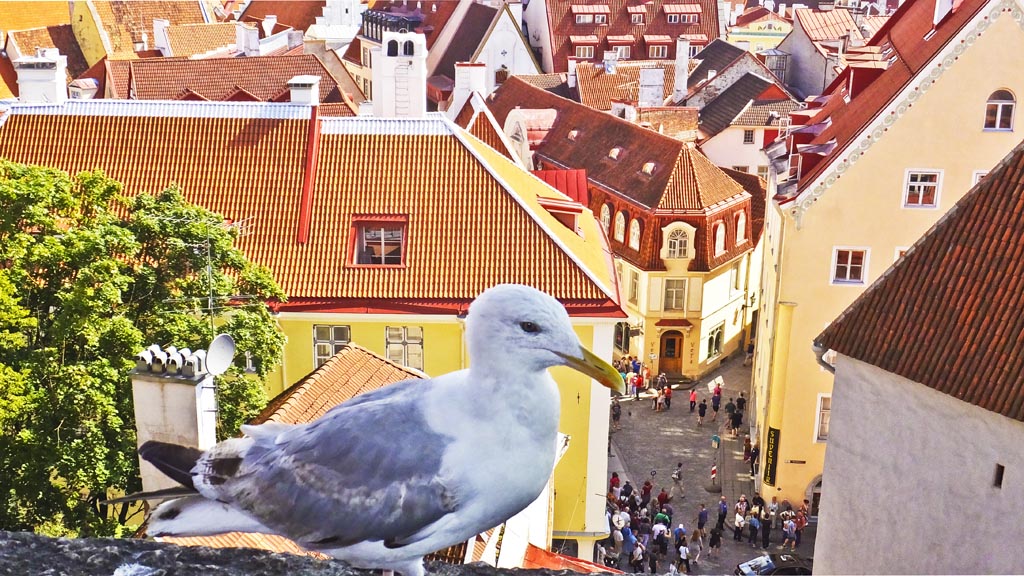
4) A View From the Top
Toompea Hill is actually a walled city within the walled city—the original gated community. It’s a bit of a hike to the top through the gates that once locked at night and up the cobblestoned passageway known as the Long Leg, but the view once you get there is definitely worth the climb.
A couple of churches of note at the top are St. Nicholas Church which was levelled during the Second World War but has been completely rebuilt as a museum and concert hall and the St. Michael’s Church, which was originally the city’s hospital.
The streets at the top end at panoramic viewing terraces, where the nobles who once lived in the upper levels could literally stand and look down at the merchants and workers on the streets of the town below and out toward the harbor.
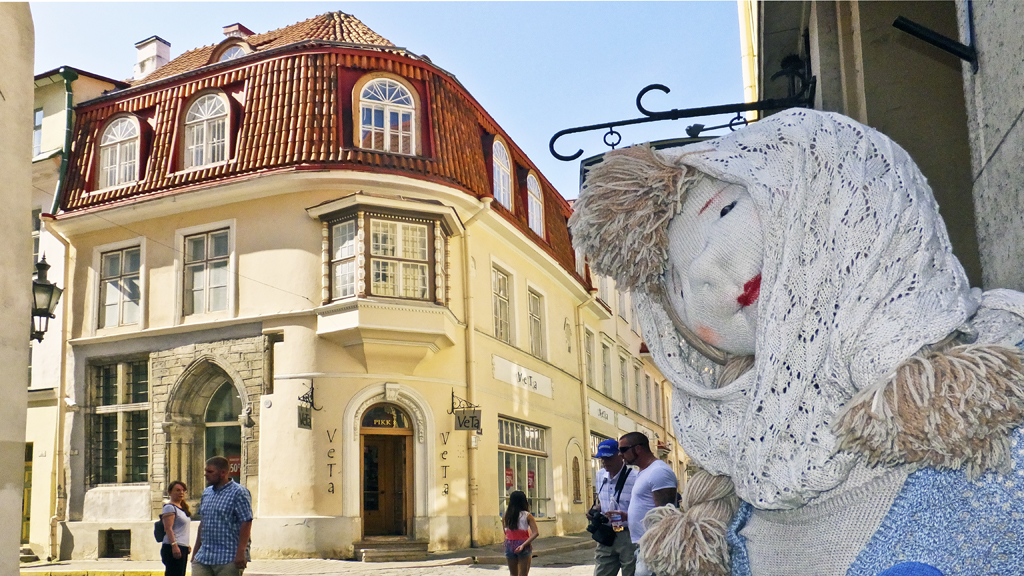
5) Pikk Street
The most important guilds of the Hanseatic League had warehouses and offices along this street that led to the harbor. Many of the buildings still have cranes atop their gables that were used to load goods onto wagons. Several of the houses still have amusing symbols of their crafts, including a man peering through a set of spectacles who perches on the peak of the roof of number 23.
The Hall of the Black Heads Society, number 26, served for 500 years as a wealthy merchants’ club and trade offices of cities as far away as London and Bruges.
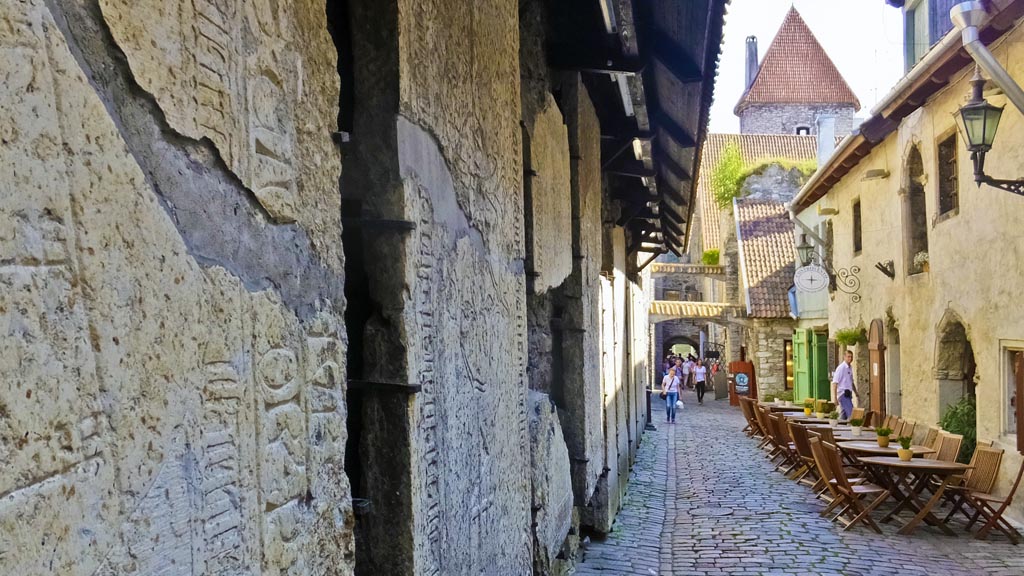
6) St. Catherine’s Passage
One of the prettiest little walkways in all of Old Town is the medieval St. Catherine’s passage connecting Vene and Müürivahe streets. On the northern portion of the passage you can find what’s left of St. Catherine’s Church, which gave the passage its name and a wall built of ornate ancient tombstones that were once inside the sanctuary of the church.
Today, the passage is a hive of crafts workshops, where artisans will custom make craft items for sale.
Old Tallinn is a worthy ramble no matter which way you turn, you can’t get too lost because the city isn’t all that large. If you do need directions, an executioner will be happy to help. Just don’t stick your neck out.

